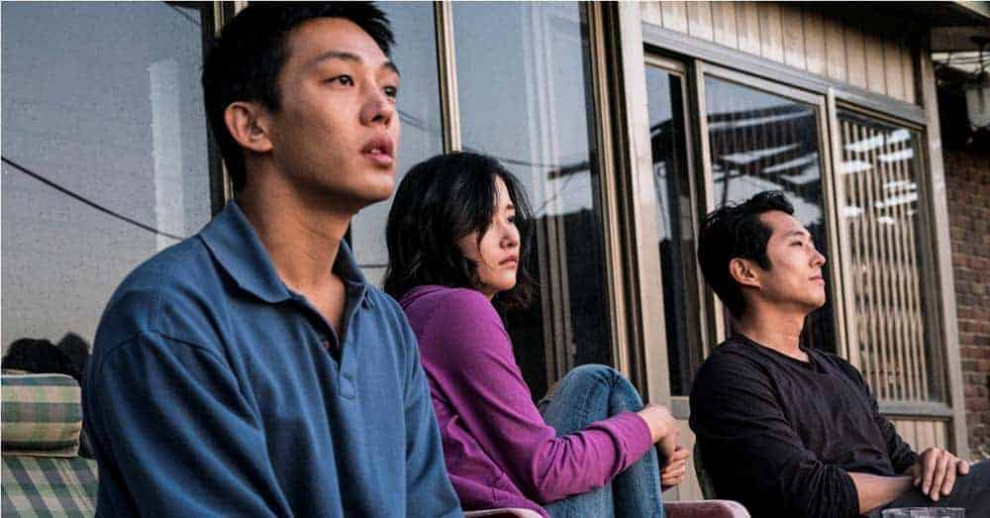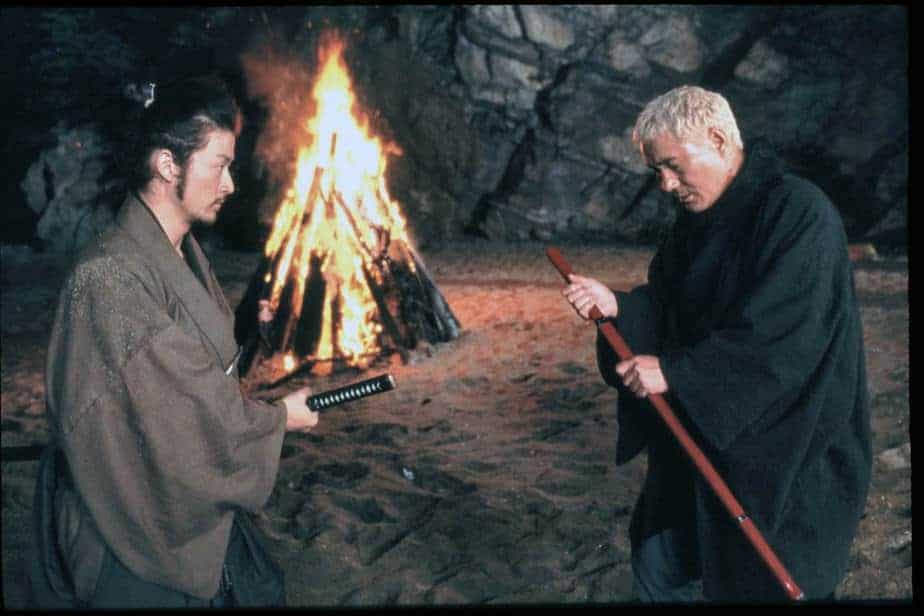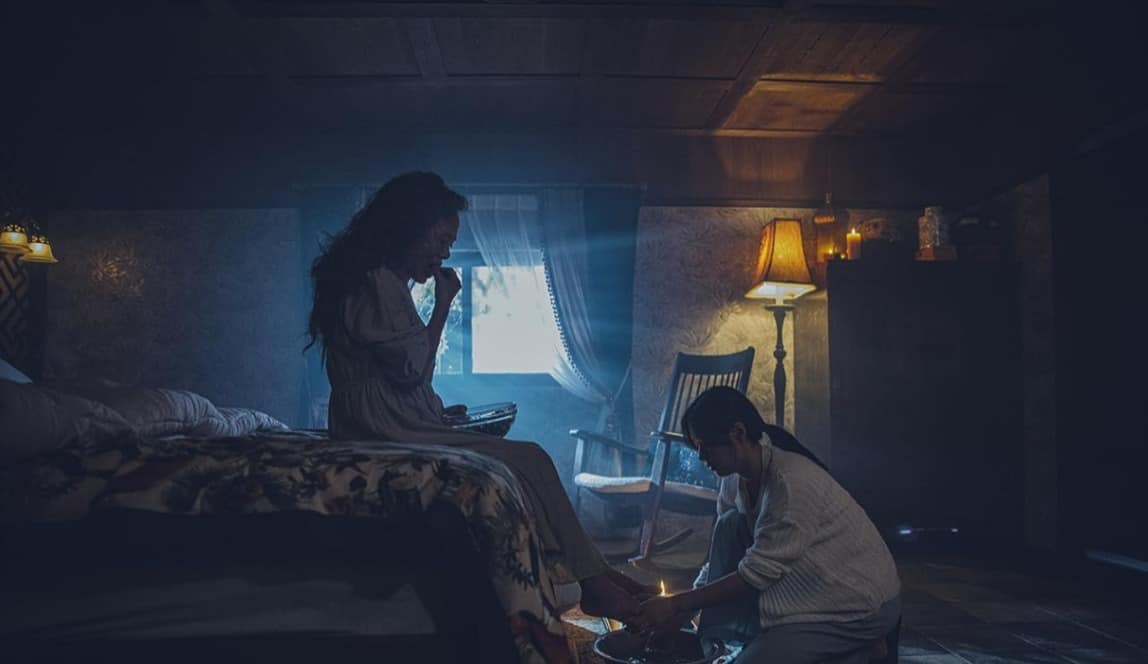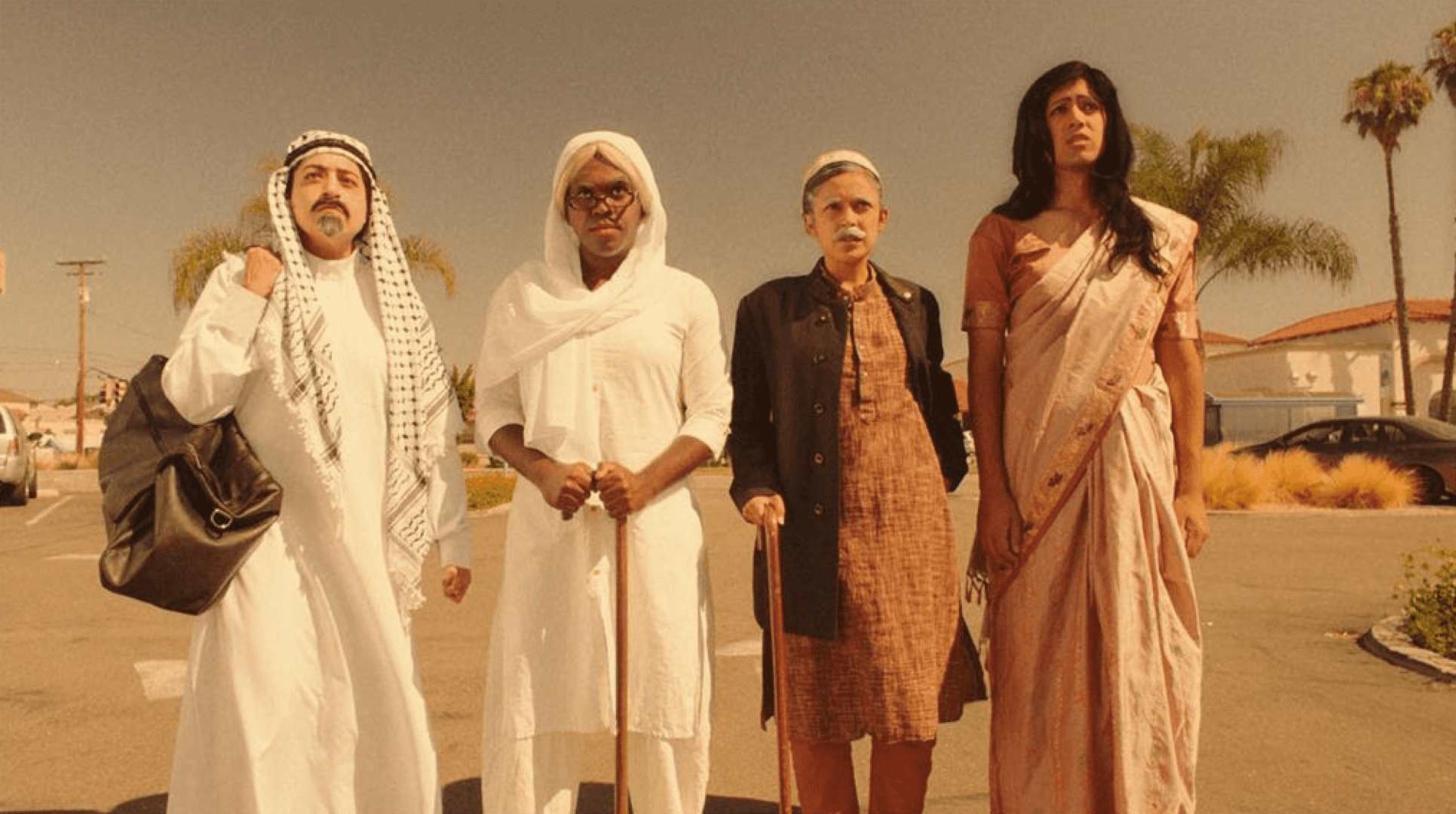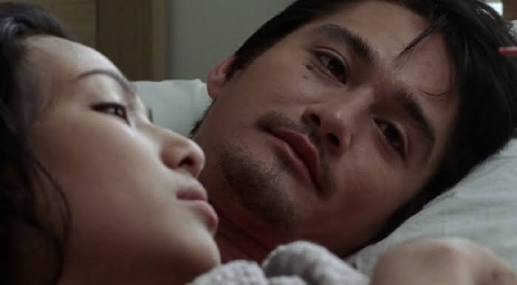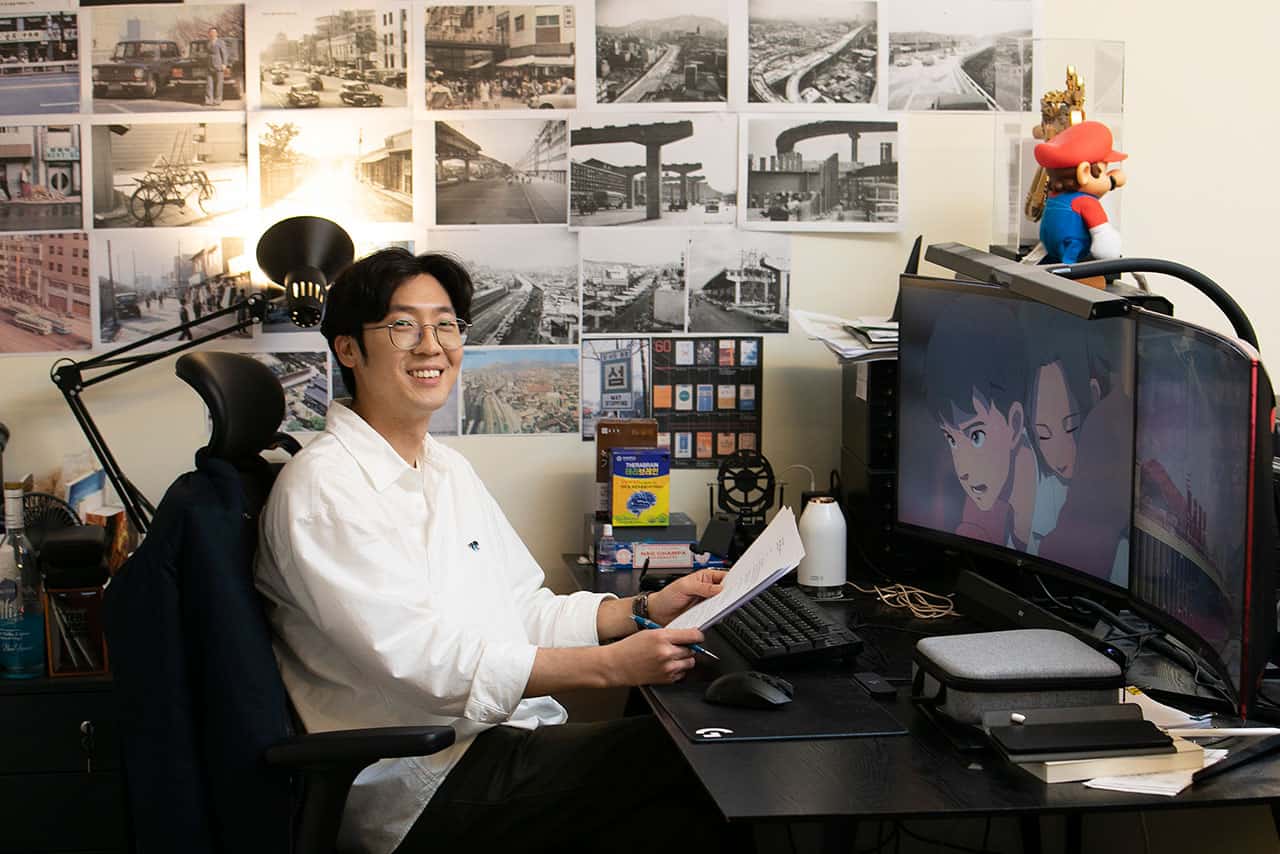Acclaimed Korean director Lee Chang-dong is back after an 8-year absence from the movie industry and – hey – it was well worth the wait! His latest work “Burning” premiered with a bang at Cannes Film Festival last April where it bagged the Fipresci Prize and is collecting excellent reviews anywhere it lands. “Burning” was also the official submission of South Korea for the ‘Best Foreign Language Film' category of the 91st Academy Awards in 2019.
“Burning” is screening at the 27th Art Film Fest Kosice
Marketed as a thriller-esque adaptation of Murakami Haruki's short novel “Barn Burning” (first published in the ”New Yorker” and part of the anthology “The Elephant Vanishes”), it's a lesser-known fact that Murakami himself was inspired by William Faulkner's novel of the same title, where an arsonist exerts his power and control burning barns and ultimately forcing his family to lie in the name of a deviated idea of loyalty. His son Sartoris' struggle between justice and paternal influence is at the core of Faulkner's story. Lee Chang-dong has also playfully placed a couple of “Easter eggs' in the movie, referring to the North American author as well as F. Scott Fitzgerald's “The Great Gatsby”.

Working class young dude and wannabe-writer Jong-su (Yoo Ah-in) is working on a part-time delivery job in a popular area of town when he runs into Hae-mi (Jong-seo Jun), a girl he knew years earlier, during his childhood. Hae-mi is pretty and flirty and teases Jong-su, reminding him that he used to ignore her and call her ugly (a fact of which Jong-su has no memory whatsoever) and after few ice-breaking cigarettes, chats and drinks they end up in her flat and, predictably, in bed. Jong-su is pleasantly besotted by Hae-mi, a free spirited independent modern girl who is learning mime, can peel imaginary oranges and has a “hunger” for discovering the world. In fact, she is just about going off on a trip to Africa and Jong-su promises her to feed the cat in her flat while she is away. But in her absence, despite dutifully trying to look after the cat, the mysterious pet – in full Murakami mode – never shows up. Does Hae-mi really own a cat?
Surprises continue when Hae-mi returns from her holiday with charming and suave Ben (Steven Yeun), a rich guy she met in Kenya and who is a far too inequitable love-rival in Jong-su‘s eyes. He is shocked and feels belittled; he has no aces up his sleeves to counteract Ben's expensive foreign car and the flashy lifestyle that Hea-mi appears to love, but the two seem to enjoy Jong-su‘s company and keeps inviting him along until one day they go and visit him in his father's little farm in the area of Paju, near the Korean DMZ. They bring along wine, food and weed and after few puffs, Ben confesses his “vice”. “Sometimes I burn down greenhouses” he blatantly declares, a statement so extravagant that leaves Jong-su puzzled and at the same time strangely attracted by this arrogant show-off of power. Ben also claims he just recently burned down one nearby, generating an obsessive curiosity in Jong-su, who, in the following days, starts to look for it. At the same time, Hae-mi vanishes – just like that – in a puff of smoke, leaving no traces or clues behind. Nobody knows where she is and Jong-su is the only person who frantically looks for her. Does sly and indifferent Ben have anything to do with Hae-mi's disappearance? And whose cat is that, in Ben's apartment?
Up to this point the story follows Murakami's framework quite accurately, but “Burning” carries on for another hour or more, derailing on a hypnotic crescendo of uncontrollable anxiety, building up to the inevitable finale.
The paths of these three young souls cross and clash, releasing class frustration, male insecurity and a numbing sense of foreboding and premonition. Haunting and penetrating, this is a movie that gets under the skin like a parasite and plants its eggs of disquiet that will keep hatching for a long time.
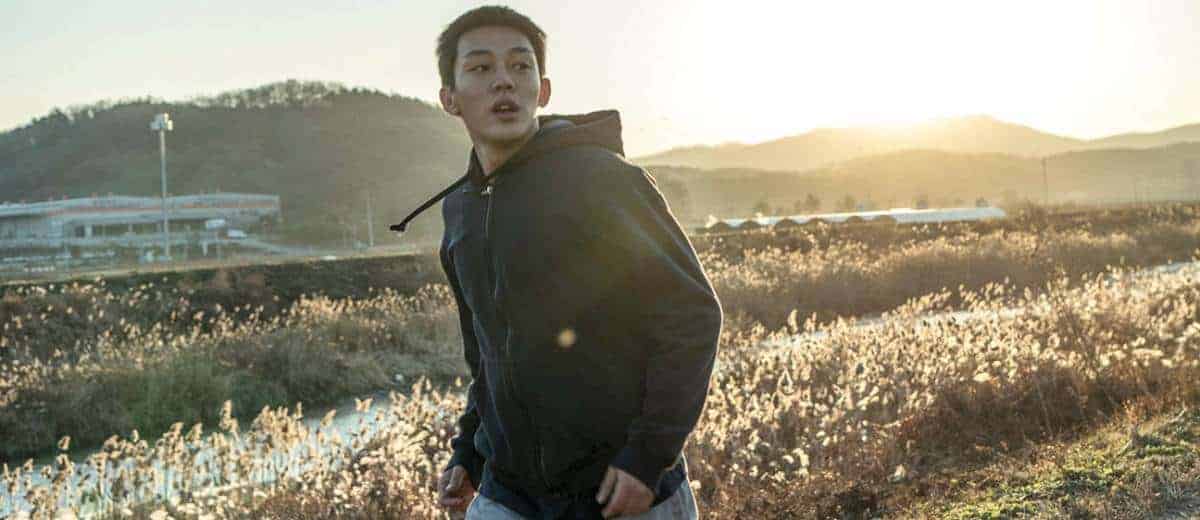
If Murakami provides the skeleton of the story, there are few themes and threads that Lee Chang-dong takes from Faulkner's novel too and uses them to enrich the film's dense symbolism and Jong-su's character. Several sub-plots populate the story, one in particular about Jong-su's father who has an anger management problem and is jailed for it. Jong-su is desperate to escape his genes, just like Faulkner's Sartoris who must decide his own moral imperative. As both Jong-su and Sartoris are trapped in their social class, their status is embedded in their DNA. This encapsulates the deep fatalism of the movie that reveals itself more and more like a tale of absence; absence of Hae-mi and her ability to bend Jong-su's barren reality, absence of memories, absence of a cat (ok, for the joy of all Murakami's fans!) absence of inspiration for Jong-su's dream job as a writer and ultimately, absence of future. In the structural game of solids and voids, absence defines presence, like Hae-mi's imaginary orange.
Hong Gyeong-pyo's cinematography is top notch, transparent like a winter morning and full of sorrow and longing. In one memorable scene, Hae-mi, drunk and stoned, slowly dances on Miles Davis music, her topless black silhouette against the golden light of sunset, a South Korean flag flapping away and the North Korean border on a distance. Hae-mi dances and cries in this wonderful, richly symbolic concoction of moods. Lee Chang-Dong might be famous for being almost sadistic with his actors – as Moon So-ri told us – but the outcome is in front of our very eyes; the three young protagonists are truly terrific.
Lee Chang-dong and co-scriptwriter Oh Jung-mi have blended two novels from different eras and countries, embedded them in a bona fide South Korean contest and succeeded in creating a beautiful, contemporary and at the same time universal metaphor of youth discomfort.


